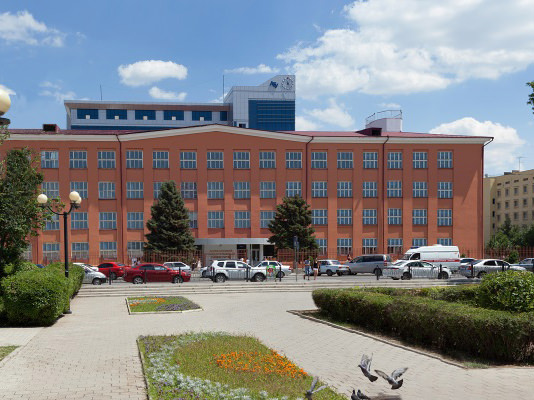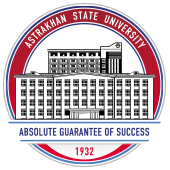Experience of Inclusive Education: University of Paris VIII & ASU
 25.04.2014
25.04.2014
On April 23-24, 2014, Professor Jack Sagot from the University of Paris VIII, a unique specialist in the field of educating people with special needs, has visited Astrakhan State University.
Professor Jack Sagot is a merited scholar in the field of Molecular Biology, a laureate of the International Exhibition of Inventions of Geneva (Golden Medal, 1985, for his invention of a special pencil for blind people); he was decorated with an honorable rank “National Order of Merit” by the French Government. He is a Doctor of Sciences, a teacher-trainer at the Institut National Supérieur de Formation et de Recherche pour l’Education des Jeunes Handicapés et les Enseignements Adaptés (INSHEA) and specializes in the field of educating people with special needs. Professor Sagot is an author and a developer of programs adapted to teach people with special needs; he is an outstanding specialist in the field of Psychological Pedagogics, Neurology, and ICT; he coordinates various EU and worldwide projects related to such programs as TEMPUS, HELIOS, PETRA, HORIZON, SOCRATES, and ADAPT.
Astrakhan State University has been in regular contact with Professor Sagot for 10 years already, since the very beginning of executing TEMPUS projects at our University - at that time, Russia began to implement inclusive education actively.
On April 23, there was a meeting that concerned issues and prospects of inclusive education. Deans of our Departments, Heads of our Chairs, and other faculty staff members have come to take part in the discussion of large-scale projects to form a positive educational environment for people with special needs.
Professor Sagot has emphasized that the meeting is unique: its participants were to unite their efforts to invent ICT devices and to apply them in the university environment. However, as he pointed out, it is impossible to support inclusion only by specialists in the field of ICT. If a computer specialist creates a software product, a teacher is to implement it into practical application; whereas psychologists and sociologists analyze the obtained results. Such projects do not just contain a considerable research potential, but also provide broad opportunities for their commercialization: new technologies for people with special needs will be of high demand within the educational process of universities and secondary schools, as well as among elderly people.
Our faculty staff has contributed much to the vivid discussion; they shared their experience in organization of teaching students with special needs. As for now, about 70 students (of 16, 000) of ASU are people with special needs. Their number is growing every year, but, unfortunately, our University is not always ready to take the right pedagogical actions and to provide all the necessary technical devices for them. Our faculty faces a necessity to obtain additional professional skills and has to acquire them on their own. The monitoring performed by our Center of Sociological Researches has revealed a high need to correct the existing approaches towards inclusive education at ASU.
During the meeting, suggestions to develop specialized retraining courses for our faculty to teach them knowledge of educating people within the inclusive environment have been analyzed and approved. The participants have remarked that it is useful to provide a unified development: people with special needs should have individual auxiliary devices and appliances to compensate their insufficient inclusion into the social environment. The economical constituent of this issue and the problem of its funding have encouraged our researchers to apply for a grant with Professor Sagot’s assistance in cooperation with EU institutions and Russian legal authorities.
On April 25, the distinguished French guest has chaired the International Seminar “Universal Educational Space of University: Issues of Educational Environment Availability & Ways to Tackle Them”. The Seminar has considered various approaches to arranging educational programs for people with special needs, as well as technological, pedagogical, and psychological problems that arise within the inclusive environment now.
Russian original information source: N.I. Kirillova (the Innovative Laboratory of Information Linguistics of ASU)
Translated by E.I. Glinchevskiy


